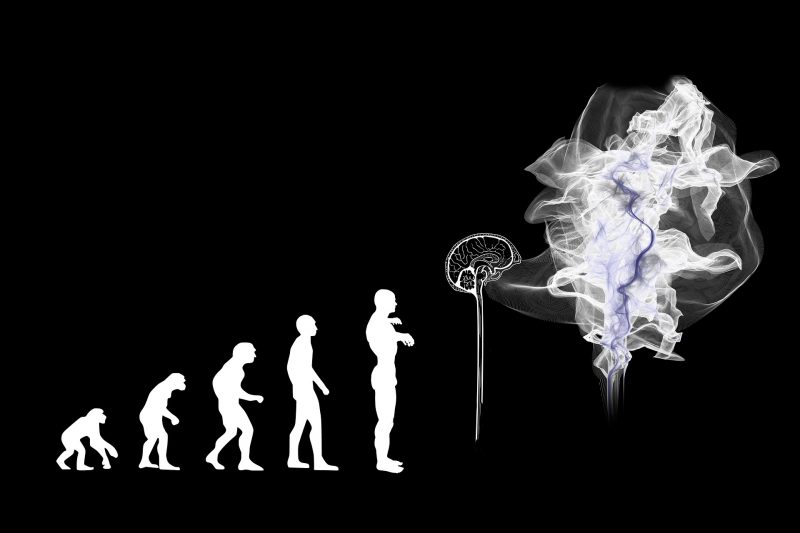Small Business and AI: Now, Next, and Future


By Steve Wells, Rohit Talwar, April Koury, and Alexandra Whittington
How can small to medium enterprises prepare for and take advantage of AI?
Technological disruptions are driving our current era of rapid business transformation and raising questions about what the future of work might be, the implications for organizations, and how to navigate successfully to the “next horizon.” How small businesses respond to the challenges and exploit the benefits of smart technologies such as artificial intelligence (AI) will be a key determinant of their success going forward.
Artificial intelligence is the rapidly growing field of computer science focused on creating intelligent software tools able to replicate critical human mental faculties. Artificial intelligence is perhaps the most disruptive technology fueling the radical transformation of business; it is truly altering the nature, scope, and scale of today’s organizations. With a level of focused attention on the now, the next, and the future of AI, small business leaders will be able to prepare for a range of possible outcomes and increase their organizations’ resilience in the face of future uncertainty.
The Now
Task automation is currently a key area for AI applications. Roles that have been traditionally thought of as requiring a high level of human intellect are being automated. The legal profession is seeing such disruption: Legal precedent and case review can be automated, contracts can be created and adapted, case outcomes can be predicted, and workload can be organized by an AI. Small businesses’ initial consideration should be how deep to deploy AI within the organization—AI can be used narrowly to automate a single task, or it may be used to go deeper and automate entire departments, e.g. customer service. How deep to take AI will depend on the goals, priorities, and, especially, on the resources of smaller firms, and on where they see the future role of humans in service, innovation, and sales.
Additionally, whilst AI boosts efficiency, decision makers must be mindful of how this may impact brand identity and user experience, and where it is still critical to maintain human involvement. As similar levels of smart automation are deployed by competing businesses, there’s a risk of commoditization: How firms stand out and maintain personality in the near future will be a critical consideration. The goal for now should be to figure out how to best deploy AI to help unleash human potential and take the business to the next level, rather than simply automate current tasks to reduce costs.
The Next
In a relatively few years, it is possible that firms may risk becoming over-reliant on AI technology while ignoring the value of human contributions in the workplace. Moreover, digital transformation initiatives typically fail because they pay too little attention to the human and cultural aspects of change. Smaller organizations will need to consider how to best invest in the technologies that will enable, not hinder staff; the challenge is how to care for those whose roles are being disrupted by AI; and how to raise everyone’s digital literacy so they understand and accept the nature of this work-altering technology. Luckily for smaller organizations that may not have a dedicated IT department, the strategic nature of deploying AI company-wide may fall under the responsibilities of the COO or CEO.
Support for these organization-changing leadership decisions can be drawn from a multitude of different places: Industry associations, conferences, and events can facilitate learning and networking opportunities; vendors can share their experience and advice; discussions with other organizations who have experimented with AI can allow leaders to tap into first-hand knowledge and experience; and science and technology graduates can intern to bring technical expertise and fresh perspectives to a firm in exchange for business experience.
As AI is adopted across the organization, business leaders should be aware that different levels of training may be necessary to facilitate transition, something akin to cultural or sensitivity training, that helps employees become accustomed to the new technology. Understandably, a senior manager whose job is being fundamentally disrupted may require more retraining and emotional support than the customer service representative who was hired a month ago.
Furthermore, small business leaders need to keep in mind that a sweeping implementation of AI without regard for the impact on employees would be bad internal PR at the least, and could have devastating consequences in terms of customer appeal and local reputation for a business. Careful decisions about which roles and functions to automate should guide AI strategy in the next few years—a simple “bottom line” approach may compromise the human element and could erode the firm’s uniqueness over time.
The Future
Within the foreseeable future, the structure of entire businesses may be revolutionized. For example, the number of decentralized autonomous organizations (DAOs) is growing; these organizations exist entirely in software—adopting self-executing smart contracts—and therefore require no human employees. This raises questions as to how businesses will be perceived in the future. And as DAOs increase in prevalence, will there be a need for human involvement and influence in business at all? With AI becoming commonplace, employees’ soft skills will be ever more important. As rule-based thinking, automation, and DAOs proliferate, sensitivity, creativity, verbal reasoning, communication, empathy, and spontaneity may become increasingly desirable skills. Smaller businesses should encourage and facilitate these aspects of personal development to ensure that their organizations make the most of this interplay between emotional intelligence and artificial intelligence.
Finally, and somewhat contrarily, future firms might focus on learning when not to use technology. Going offline is considered a luxury today; by 2025, with AI pushing productivity through the roof, disconnecting could be the key to differentiating and rehumanizing smaller firms. An organization in 2025 might enact an “information vacation” where employees could put digital work aside to socialize, connect, and reinvigorate business and client relationships face to face rather than AI assistant to AI assistant. Recognizing when not to use technology may become a key function of healthy businesses, and place smaller firms in higher standing with key clients.
Ultimately, the now, the next, and the future of AI all evidence the growing need for small businesses to focus on the human dimension. How will staff respond when their jobs are drastically changed or eliminated because of AI? How will the organization mitigate worries or stress that AI may cause? What new skills might employees need? What responsibilities does the firm have for those displaced by technology? These are the questions small business leaders should continuously ask themselves as they plan for the AI-enabled future.
- How could AI help level the playing field for SMEs competing with larger companies?
- How would we compete when AIs are able to start small businesses on their own?
- Who is best positioned to lead the AI effort in your company?
This article is excerpted from Beyond Genuine Stupidity – Ensuring AI Serves Humanity. You can order the book here.
Image: https://pixabay.com/images/id-3885331/ by geralt
A version of this article was originally published in Bytestart.


